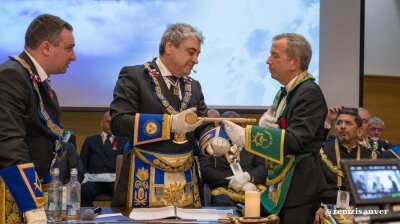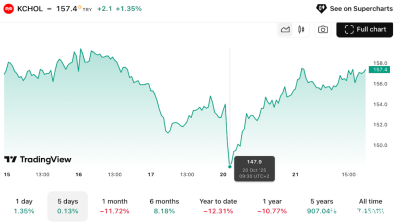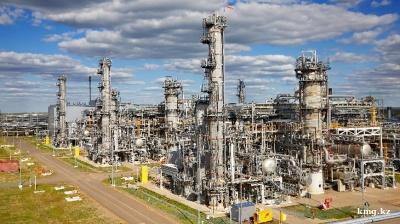The Serbian Progressive Party (SNS) claimed a landslide victory in the December 17 snap general election, dashing opposition hopes this might be the beginning of the end for the party’s long dominance of Serbian politics.
The SNS has now been in power since 2012, its control of the parliament repeatedly confirmed by a series of snap general elections.
Projections indicate that the SNS, informally led by President Aleksandar Vucic, is poised to secure nearly 47% of the votes. Opposition parties united under the Serbia Against Violence coalition lagged significantly behind, garnering only 23.1%.
Vucic told a celebratory press conference late on December 17 that the SNS’ "Serbia must not stop” list will have an absolute majority and more than 127 mandates in the new parliament.
He pointed out that the SNS’ result was the second best in its history, achieved after 11 years in power.
After a tough election campaign period reflecting the polarisation in Serbian politics, Vucic said in his victory speech that the most important thing is to unite the people and the country.
"It is important for us to try to unite the people, to unite the people, whoever rules in Belgrade, so that those people know that we wish Serbia well," said Vucic.
Fragmented opposition
From Serbia’s fragmented opposition, the main challenger to the SNS was the Serbia Against Violence coalition. A grouping of opposition parties and civil society groups, the coalition grew out of a series of mass protests that started after two mass shootings in May.
The killings — one of which was in a Belgrade school — resulted in the deaths of 19 people, shocking the nation. Opposition activists argued that the massacres were were encouraged by what they called a ‘culture of violence’ fostered by the ruling party and pro-government media.
Other opposition parties include former president Boris Tadic’s grouping alongside Sasa Radulovic and his party It is Enough (DJB). The People’s Party (NS), formed by former minister of foreign affairs Vuk Jeremic, ran on a separate list.
Belgrade in the balance
In addition to voting for the parliament, Serbians also decided on December 17 who would assume control of 65 local authorities.
Current indications are that the SNS will also keep control of the Serbian capital Belgrade, where incumbent mayor Aleksandar Sapic, a former water polo champion, is seeking reelection.
Projections suggest a much slimmer margin of victory for the SNS in Belgrade than across the country. The Progressives are on track to to secure 48 seats in Belgrade, compared to around 43 for the opposition, according to a poll released early on December 18 projection by CeSID/Ipsos.
Irregularities claimed
Opposition figures have alleged that the SNS used public resources for political motives, and the independent election monitoring organisation Center for Research, Transparency and Accountability (CRTA) raised concerns about a persistent lack of pluralism in Serbia before the vote.
The CRTA observer mission provided information about attempted ballot manipulation in several polling stations.
Local observers also said they documented alleged irregularities, such as voters being transported from Bosnia & Herzegovina’s Serb-dominated Republika Srpska to vote in Belgrade, though this was denied by Vucic.
News

Grand master mason arrested as part of Turkey’s Can Holding investigation
Second wave of detentions executed.

Istanbul prosecutors summon Koc official and Akfen boss in Imamoglu investigation
Word of move sparked volatility in stocks.

Ukrainian military strike for first time disrupts operations of Western oil majors
Drone attack damage caused to Russian gas processing plant forces scaling back of output at Kazakh field partly owned by Chevron, Shell and Eni.
_Foto2_Divulgação_Foresea_(1)_1761062969.jpg)
Petrobras secures controversial Amazon drilling licence ahead of COP30 climate summit
Brazil's Petrobras has obtained authorisation to drill an exploratory well near the mouth of the Amazon River, sparking fierce criticism from conservationists just weeks before Brazil hosts UN climate talks.
_1761050969.jpg)



